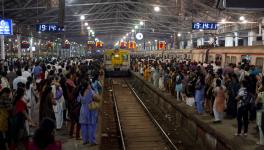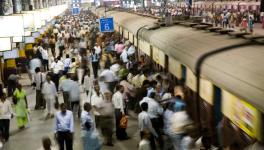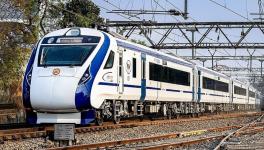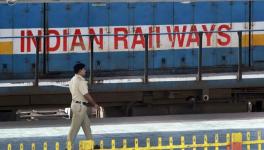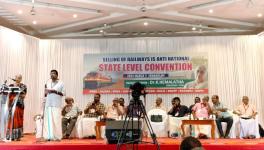Invest in Railways for Safety and Speed, Says People's Commission
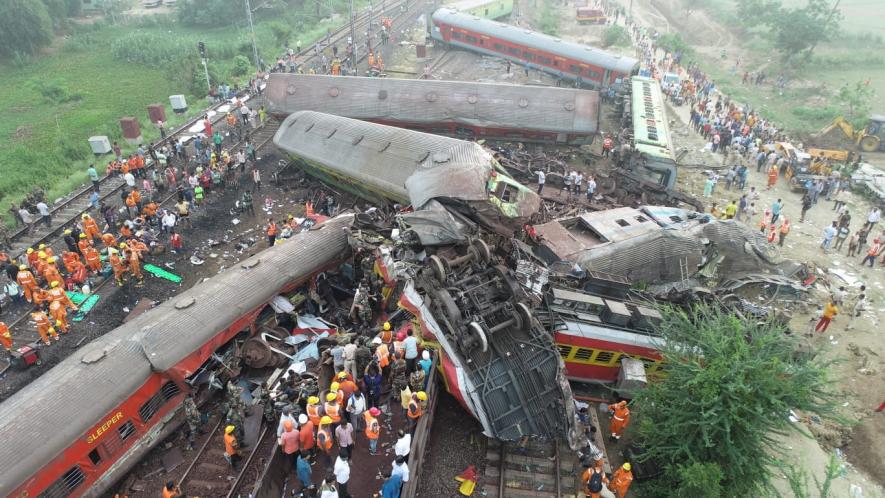
Image Courtesy: Wikimedia Commons
Delhi: The People's Commission on Public Sector and Public Services, comprising eminent academics, jurists, administrators, trade unionists, and social activists, has issued a statement advocating increased investment in railways to prioritise safety and speed. The Commission's statement follows a recent train accident in Balasore, Odisha, which resulted in numerous fatalities and injuries, as a stark reminder of the need for improved railway safety before introducing high-speed passenger trains.
Some of the Commission's noted members are Dr Thomas Isaac (former Kerala Finance Minister), E A S Sarma (former secretary at Ministry of Power, GoI), Senior Supreme Court Advocate Indira Jaising, economist Prabhat Patnaik, among others.
In its statement, the Commission highlights the vital role of railways in various aspects of society. Over the years, railways have served as a crucial provider of short-distance travel at affordable rates and have played a significant role in generating employment opportunities, particularly for disadvantaged sections of the population. Furthermore, they have contributed to the development of backward and remote areas and have acted as a lifeline for the economy by transporting essential commodities such as food grains, fertilisers, and coal. The railways have also demonstrated their effectiveness in providing logistical support during emergencies, such as the supply of oxygen during the pandemic.
Despite the railways' importance, the limited growth of the railway network since the completion of the present network by the British in 1873 is underlined as a concern by the Commission. Since India's independence, only 5,000 km have been added to the existing 55,000 km, averaging less than 200 km per year. This growth is insufficient, considering the significant increase in both passenger and freight traffic during the same period. The average speed of goods trains is only 25 kmph, while passenger trains average 50 kmph. Even the much-touted Vande Bharat trains rarely exceed 85 kmph. The Commission emphasises that increasing speed limits on certain sections can lead to congestion and sideline regular trains, resulting in accidents.
The statement also highlights the inadequate amenities for the majority of railway passengers. Despite a 113% increase in seating capacity between 1931 and 2014, the widening gap between seating capacity and passenger volume has worsened the situation for short-distance passengers. The majority of passengers, approximately 55%, travel short distances of about 20 km per journey. The remaining 45% of passengers take trips slightly over 80 km. To enhance passenger comfort, the Commission recommends increasing seating capacity for short-distance passengers and creating better amenities at affordable rates.
The Commission emphasises the urgent need to upgrade the ageing railway infrastructure and increase track capacity. It suggests the development of dedicated freight corridors and express lines to facilitate safe and efficient movement of freight and passenger traffic. Additionally, investments should be made to extend railway facilities to backward areas. The Commission points out that railways are more environmentally friendly than road transport, thereby advocating for a reorientation of the national transport policy in favour of railways.
Regarding safety, the Commission highlights the need to address critical deficiencies. Over 10,000 km of track renewal is pending, with an annual requirement of 4,500 km. Signal gear renewal in 200 stations falls behind schedule, while ageing bridges require strengthening. To address these issues, the Commission recommends establishing the National Rail Safety Fund with an investment of Rs 1 lakh crore to ensure track renewal, signal gear upgrade, bridge strengthening, and other essential safety measures.
The Commission expresses concern over the current state of railways, which have been stretched beyond their capacity. The focus on speed over safety and the neglect of ordinary passengers' needs have resulted in overcrowded trains and inadequate amenities. Privatisation of railways could exacerbate these issues, with private companies likely to increase charges that ordinary passengers cannot afford. The Commission also highlights the decline in railway employment opportunities, with a reduction of 4.42 lakhs in railway staff since 1990 and 3.12 lakh vacancies at present.
Get the latest reports & analysis with people's perspective on Protests, movements & deep analytical videos, discussions of the current affairs in your Telegram app. Subscribe to NewsClick's Telegram channel & get Real-Time updates on stories, as they get published on our website.










